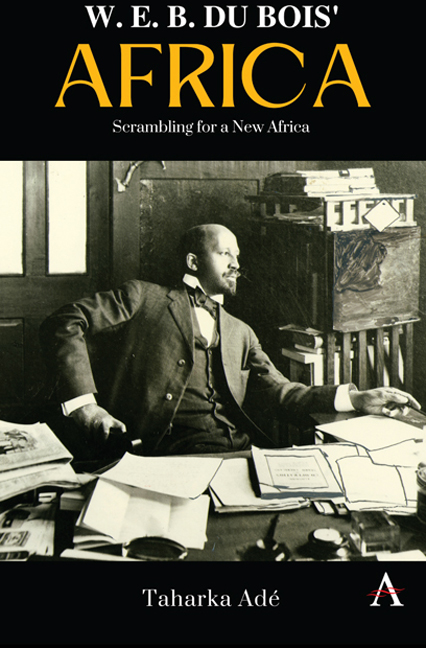4 - Locating Du Bois
Published online by Cambridge University Press: 28 February 2024
Summary
Du Bois’ Andromeda Complex
The year was 1911; W. E. B. Du Bois’ Souls of Black Folk had apparently found itself on the international scene and drew a response from J. E. Casley Hayford, one of coastal Africa's most prominent theorists of Ethiopianism—a social-cultural movement that was partly religious and centered Ethiopia as the redeemer of the African race. Hayford wrote in his manifesto, Ethiopia Unbound, a critical response to Du Bois’ theory of double consciousness, and regarded the theory as “one of the most pathetic passages in the history of human thought.” Du Bois perceived “a world which wields him no true self-consciousness […] this sense of always looking at one's self through the eyes of others, of measuring one's soul by the tape of a world that looks on in amused contempt and pity. One ever feels his twoness—an American and Negro; two souls, two thoughts, two unreconciled strivings; two warring ideals in one dark body.” This thinking apparently sat in sharp contrast with Hayford's self-conscious Ethiopianism. Hayford's retort was piercing:
It is apparent that Mr. Du Bois writes from an American standpoint, surrounded by an American atmosphere. And, of course, it is not his fault, for he knows of no other. To be born an African in America, in that great commonwealth of dollars and the merciless aggrandizement of the individual, where the weak must look out for himself, and the cry of the innocent appeals not to whom who rides triumphantly to fortune, is to be entangled in conditions which give no room for the assertion of the highest manhood. African manhood demands that the Ethiopian should seek not his opportunity, or ask for elbow room, from the white man, but that he should create the one or the other for himself. (emphasis mine).
Hayford's critique of Du Bois at this time differs very little from Carter G. Woodson's indictment decades later in which he proclaimed that, ostensibly unlike Du Bois, he didn't “accept the gifts of the Greeks.” This, of course, was in response to Du Bois’ position that he must make use of the money, and, subsequently, the opinions that came from with that money, being offered by whites in order to create the Encyclopedia of the Negro. To be fair, Du Bois too was quite critical about the project and viewed the whites who headed it as “the enemy.”
- Type
- Chapter
- Information
- W. E. B. Du Bois' AfricaScrambling for a New Africa, pp. 107 - 122Publisher: Anthem PressPrint publication year: 2023



